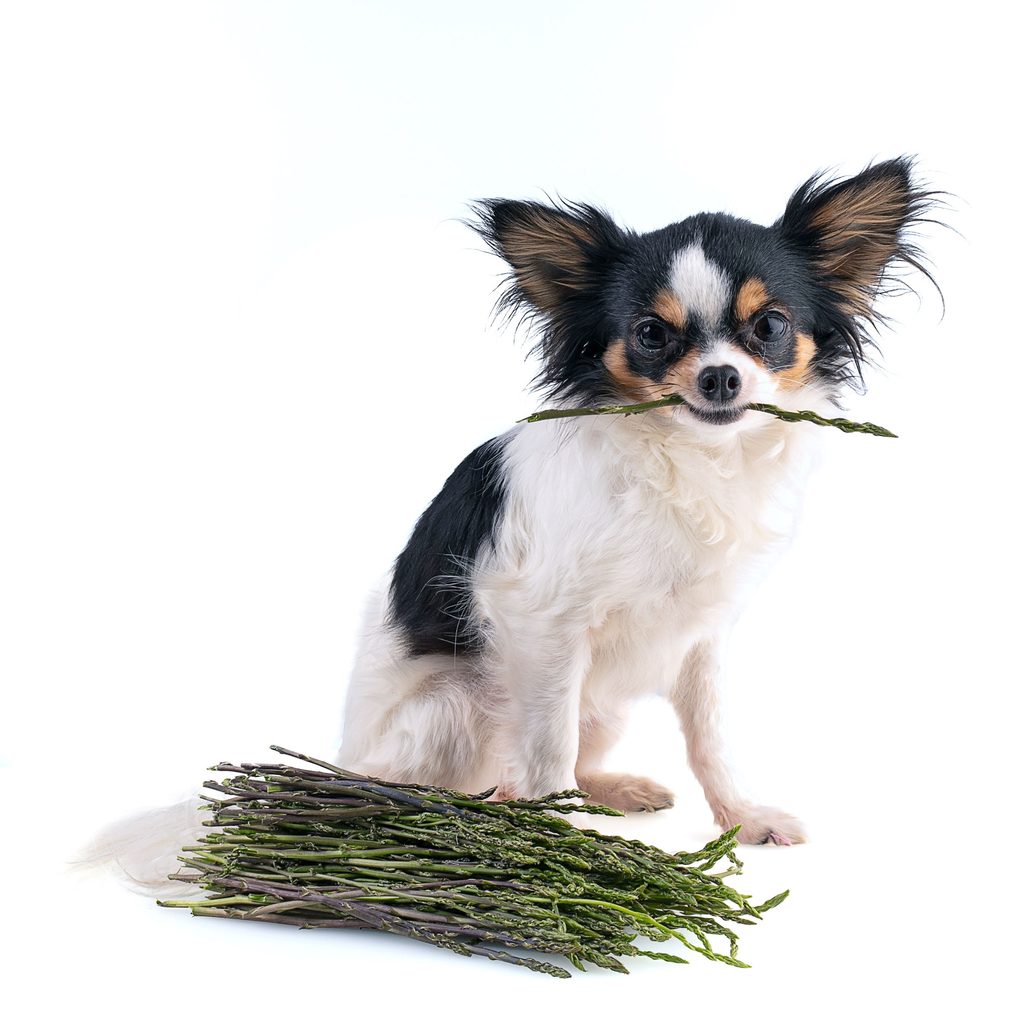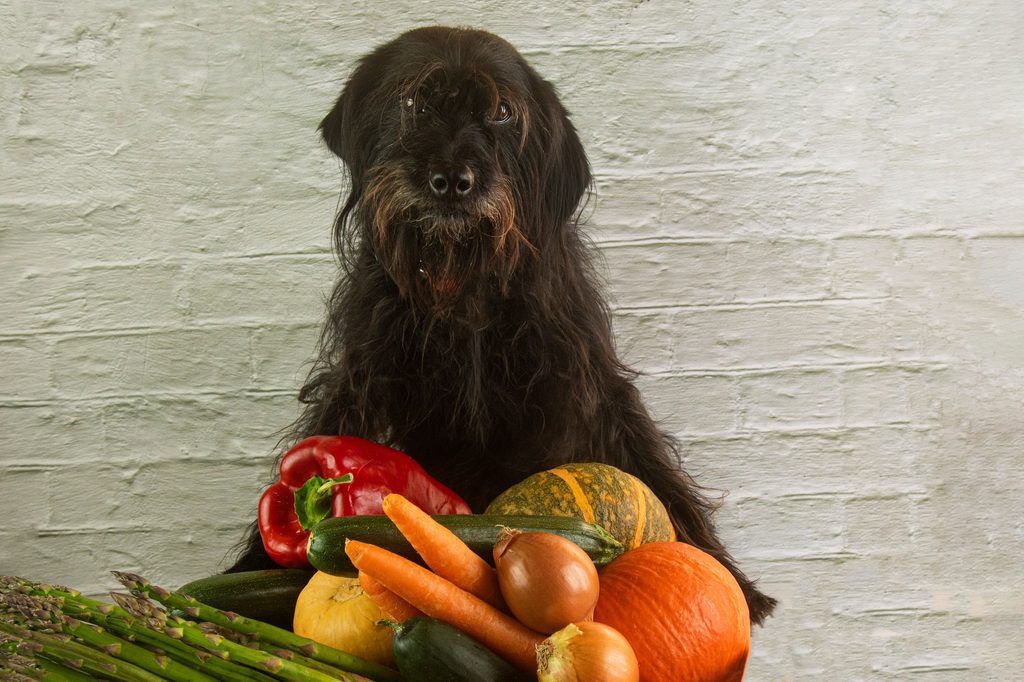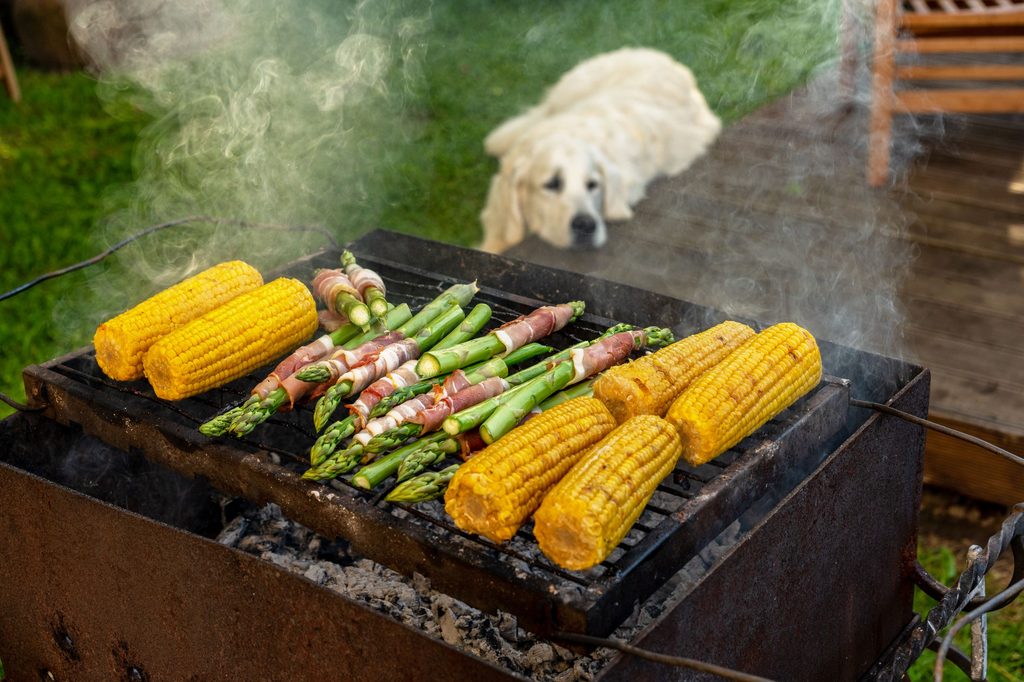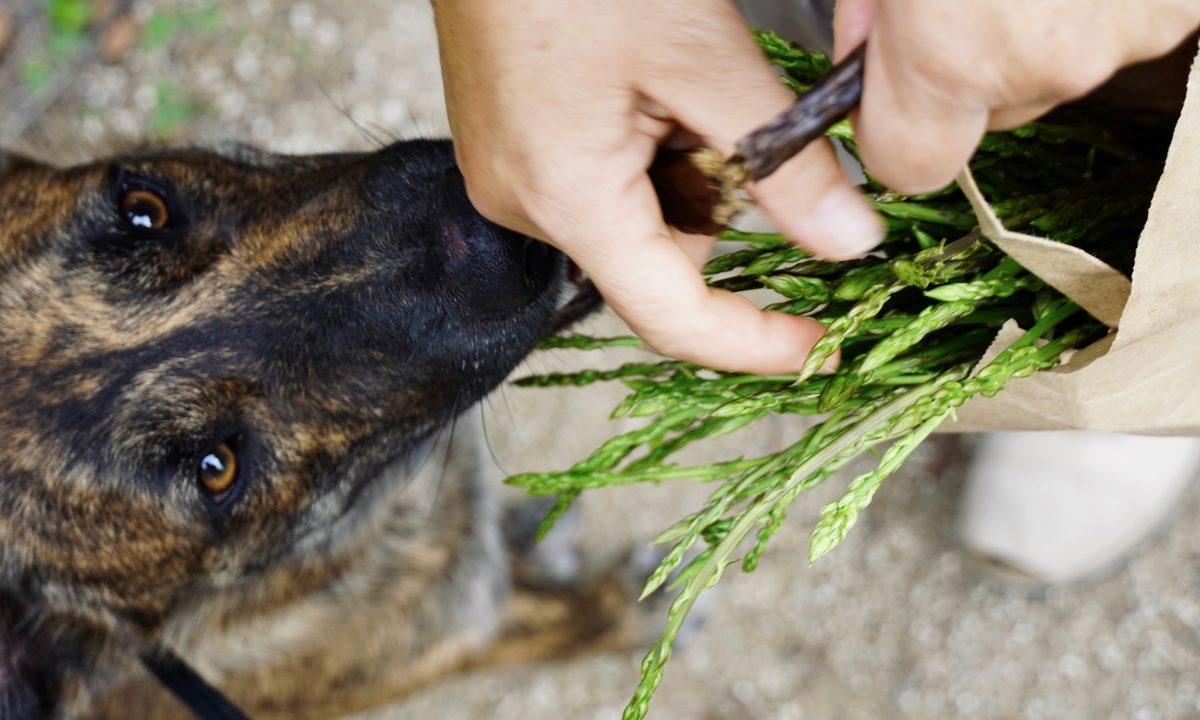It’s usually pretty easy to tell a dog’s favorite food. Sometimes it’s a special treat like a Greenie, other times it might be a favorite brand of kibble, or perhaps just anything bacon flavored. While they may hoover up the occasional dropped broccoli floret or bit of celery root, there are some fruits and veggies that dogs can’t eat and others that must be prepared in certain ways beforehand. Grapes and avocados top the never list, but can dogs eat asparagus? It depends on how much and how it’s made.
Can dogs eat asparagus?

Usually when we talk about vegetables, we encourage pet parents to provide them raw. In addition to the nutritional benefit, giving plain veggies also ensures that nothing else gets in there with the healthy snack. As in, we shouldn’t feed our pups buttered carrots because they won’t process that extra fat and dairy well.
However, asparagus is a bit of an exception here. Because it’s so tough and parts of it are extremely fibrous, we do recommend lightly cooking first. Remember — no additives. So you should boil, blanche, or steam only, and then give that to Fido, after it cools, of course (feel free to salt and pepper your own portion).
One more note before we dive into asparagus more deeply — treats should only represent about 10% of your fur baby’s daily food intake. And that’s for everything, not just human food. The other portion needs to be well-balanced dog chow, formulated just for canines.
What are the risks of asparagus?

We talked generally about asparagus being a bit of a high-maintenance snack, but why? This plant is super difficult to break down, especially raw. In particular, you want to avoid the woody ends, which always need cutting off before you serve to your pet, or likely, yourself. On top of that, asparagus presents two specific risks, which we detail below.
Choking hazard
Have you ever dropped something on the floor while cooking only to watch as your sweet pup swallowed it whole in one gulp? We’ve all been there. For many foods — even if you’re horrified — it doesn’t negatively impact your little guy, but asparagus is different.
When you bite into the tough stalk, you’ll notice that it takes a long time to chew, especially the bottom woody part, which is why we suggest removing it. Cooking it even just for a few minutes will soften the greenery right up. Always try the asparagus yourself first to ensure that you can manage to get it down relatively easily. Then cut into bite-size pieces. Otherwise, it could get stuck in your bud’s throat or even digestive tract.
Upset stomach
All that fiber can benefit your tummy and digestive system more broadly, but it might cause problems in excess. Some dogs will have stomach issues after they eat asparagus, including gas, diarrhea, and vomiting. This will depend somewhat on the individual animal and their diet. For example, if your pup tends to be a farty one on the regular, maybe skip the asparagus altogether. No matter how they react, recall that a little goes a long way.
Our final thoughts on asparagus and dogs

We declare asparagus safe for dogs with a caveat: It needs to be cooked in water and cut into small pieces before it goes into your pup’s mouth. Then start by testing a little bit with your four-legged friend and see if you spot any side effects. Assuming nothing comes up, you can move onto giving a dog-size portion, which needs to equal less than 10% of their daily food intake. That could be one small stalk for a pooch on the littler side or maybe a couple at most for a bigger buddy. Luckily, that leaves more for you!
While our dogs love human food (in part because they watch us eating it) that doesn’t mean it’s always good for them. There are some things you must avoid all the times, such as chocolate, and many snacks that work just fine in moderation. Asparagus falls into the latter category — don’t overdo it, but a tiny bit will not do any harm. Some buds may take a liking to a particular vegetable as well. It’s surprising when your dog’s favorite food becomes the stuff of toddler nightmares, but count your blessings. While it might not make sense, feel free to give a veggie snack to your beastie from time to time as a low-calorie treat. Then slab some butter on it and have the rest for yourself.




